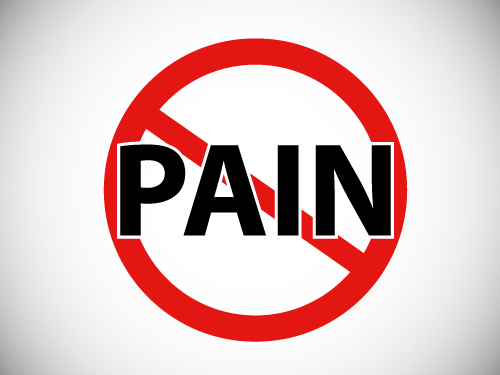Campaign to demand pain-free treatment for all: Physicians, patients, & caregivers
UNI Oct 12, 2018
Patients, caregivers and physicians have joined hands to demand special healthcare facilities and norms to minimise pain of 10 million patients undergoing serious health-related suffering and have set out to collect 1,00,000 pledges for their 'Say No to Pain' campaign seeking better pain management.

The campaign, jointly launched by two NGOs CanKids..KidsCan and Pallium India, is part of events on October 12 at Select City Walk in South Delhi that will mark the World Hospice and Palliative Care Day. The pledges will be collected to demand from the Union government a commitment that National Programme for Palliative Care (NPCC), 2012, that deals with steps to reduce patients’ pain during treatment through proper use of available techniques, including use of opioids, will be revised and implemented across the country.
The WHO defines palliative care as an approach that improves the quality of life of patients and their families facing the problem associated with life-threatening illness, through the prevention and relief of suffering by means of early identification and impeccable assessment and treatment of pain and other problems, physical, psycho-social and spiritual.
The pledge campaign is also aimed at seeking implementation of the Narcotics and Psychotropic Substances (Amendment) Act, 2014, that governs the availability of groups of drugs called “narcotics” like morphine and “psychotropics” like amphetamine which have medical value but are not easily available to treating doctors for use on patients due to non-uniform policies in states and a tight regime to check misuse and diversion of opioids to the illegal drugs abuse market.
'Patients with severe pain in India are not able to get opioid medicines for pain relief because the state NDPS rules make it difficult for hospitals to store and dispense opioids,' said Poonam Bagai, vice-chairperson of Pallium India and head of childhood cancer NGO Cankids...Kidscan.
The NGOs are also demanding a simplified national policy on opioids to ensure their easy availability for patients while maintaining strict check to prevent pilferage and abuse. The series of events will culminate on October 12 with a conclave of patients and caregivers where posters made by them will be exhibited, a panel discussion will be organised and an Australian documentary film “Hippocratic”, produced by the award-winning Moonshine Agency from Australia, would also be screened.
The documentary is based on the journey of M R Rajagopal, chairman of Pallium India, to help make Indian patents’ life pain-free.
Lending support to the pledge campaign is cancer survivor Simran who was diagnosed with blood cancer at the age of four. Although she is a grown up now, but those painful memories still agonise her.
'During my bone marrow biopsy, the doctors took a blood sample without administering me anaesthesia. Today I feel outrageous and wronged knowing that there were alternatives available but no one bothered to ease my pain.' Another survivor, fought uterus cancer when she was 13 years old. For her biopsy she was held down by 4-5 people as the doctors took her sample out. But now that she is a grown up and comprehends the various means the doctors could have used to reduce pain, she feels deeply upset for being treated worse than a caged animal and wants no one to go through the same.
Ms Bagai, who works for children with cancer, said that the suffering of kids undergoing cancer treatment gets accentuated due to lack of inadequate palliative care. In March 2017, after sustained efforts and advocacy, palliative care was included in India’s National Health Policy. The medical curriculum for students still does not include palliative care, and pain management (purely physical) is taught for a total of one hour in a 5-year programme and remains a non-examinable subject.
The World Hospice and Palliative Care Day aims to share our collective vision to increase the availability of hospice and palliative care throughout the world by creating opportunities to speak out about these issues... raise funds to support and develop hospice and palliative care services around the world.
Worldwide more than 3,00,000 (age 0-19 years) children and adolescents are diagnosed annually with one of 16 forms of childhood cancers. Out of these, 40-50,000 (age 0-15 years) are diagnosed in India, according to NGO Cankids...Kidscan that works in over 50 cancer centres in 18 cities and 14 states which treat more than 18,000 new cases of childhood cancer each year.
-
Exclusive Write-ups & Webinars by KOLs
-
Daily Quiz by specialty
-
Paid Market Research Surveys
-
Case discussions, News & Journals' summaries